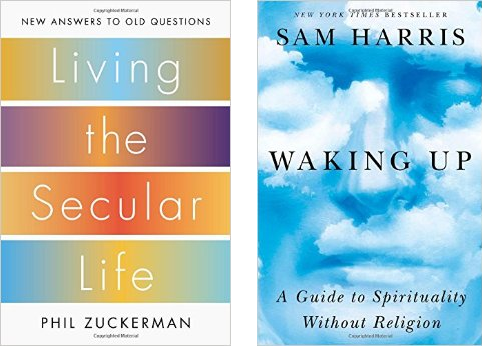The weekly update on the SPI Fellows
by Madeline Schussel

SPI Fellow Phil Zuckerman, Pitzer College Professor of Sociology and Secular Studies and author of Living the Secular Life: New Answers to Old Questions, spoke this week with interviewer Patt Morrison of the LA Times about his Op Ed in the same publication last month, How Secular Family Values Stack Up. Zuckerman presented an argument for the existence of a strong moral framework implicit within secular values, while pointing out that the moral framework within a religious context may actually be less stable.
ÔÇ£From a secular framework, itÔÇÖs just us,ÔÇØ Zuckerman commented. ÔÇ£Ethics and morals are really about adhering to our own conscience.ÔÇØ Coming from a fear of a sinful nature and the desire to avoid punishment, he notes, is more like ÔÇ£moral outsourcingÔÇØÔÇöa more precarious system of accountability.
According to research, secular adults seem to excel on a number of levels. They are less likely to own guns, more tolerant, less racist, less sexist, and less homophobic. More religious adults do tend to give more time and money to charity, and to live longer.
Zuckerman described how humans have evolved for empathy as pack animals, explaining how bonobos and other closely related primates treat each other (well) within a group context. He also brought up research into how the least God-believing societiesÔÇöJapan, Scandinavia, etc.ÔÇöare not rife with the problems of more theistic societies. There is, at least, no statistical correlation between more religiosity and less crime and corruption within communities.
On Tuesday, LA Times columnist Annabelle Gurwitch accented the discussion with an Op Ed of her own, in which she referred to SPI Fellow Sam HarrisÔÇÖs Waking Up: A Guide to Spirituality Without Religion to describe her personal struggle with her sonÔÇÖs growing secular identity.
